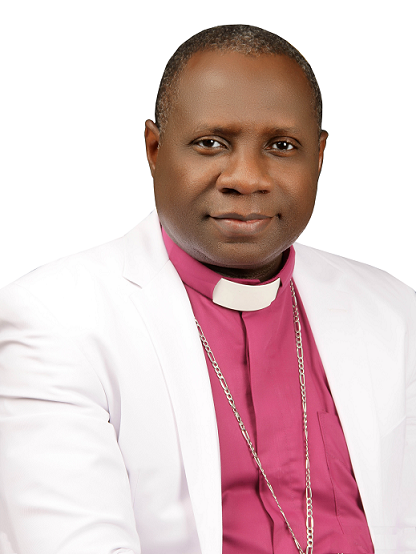Archbishop's Message

His Grace,
MOST REV. (Dr.) DANIEL C. OKOH
Archbishop, Christ Holy Church International
Agnes Amanye Okoh was born in May 1905 to Onumba Emordi, a farmer, and Ntonefu, a trader. Emordi, her father, was a native of Ndoni, a town in the Ogba/Egbema/Ndoni Local Government Area in Rivers State, Nigeria. The town is divided into three villages and twelve quarters. Onumba Emordi was from Umu-Agbidi quarters in Ogbe-Ukwu village. Ntonefu, her mother, was from Umikem quarters at Onitsha, also in Igboland, in eastern Nigeria. Emordi and Ntonefu were married at a time when the child mortality rate in Nigeria was very high. Ntonefu gave birth to thirteen children, but the couple had to bury twelve of them, and Agnes was the only survivor. Her parents were not Christians, but she worshipped periodically with a nearby Roman Catholic congregation.
Agnes was not educated in any of the numerous mission schools in Igboland. The reason may ostensibly be attributed to her gender and to the prevailing Igbo perception of the roles of women in society. Comparing the privileges and responsibilities of Igbo males to their female peers in 1921, Basden observed:
The women and girls are not so free, though they enjoy themselves well enough in their own way. Almost as soon as they can walk, girls take a share in the household duties. They begin by carrying water, collecting firewood, rubbing floors, assisting in the preparation of food, and then, they are initiated into the technicalities of trade…Unless a girl can read before she is twenty it is safe to assume that she will never learn at all. This will serve to illustrate the uniformly low level of intellectual attainment with which Ibo women are satisfied. In fact, Ilogu notes that the education of Igbo women was taken seriously from 1939 to 1964, a period when Agnes was approaching her mid-life.
Upon the death of her parents, she left Ndoni to live with some relatives at Asaba, a town close to her mother’s hometown, Onitsha. Until 1924 she was a petty trader, buying and selling textiles. She married James Okoh, a Ghanaian immigrant sailor in Nigeria, in 1924. James Okoh was a Ga from the Kwakwaranya We (clan) in Accra, Ghana. After the marriage, her legal name was Agnes Okoh. James and Agnes Okoh gave birth to a daughter, Anyele, on May 5, 1925 and to a son, Marius Anyetei, April 5, 1927.
HER RELIGIOUS EXPERIENCE AND CALL
James Okoh died in the early 1930s, and Agnes did not remarry. While Agnes, now a single parent, was recovering from the grief of losing her husband, Anyele, her only daughter, died on April 1, 1938, at the age of thirteen, while at a middle school in Asaba, in Delta State. Agnes struggled hard to overcome her grief and the challenges of single parenthood. She developed migraine headaches and began seeking healing from one mission hospital to another. When it became evident that her migraines defied the potency of Western medicine, she visited some native doctors, known among the Igbo as dibia. However, the native doctors also failed to provide any relief, and she became restless. There were few African Independent Churches and their related prayer houses or healing homes in Igboland at that time. Some of the few operating in eastern Nigeria were the Cherubim and Seraphim Church, the Christ Apostolic Church, and Madam Nwokolo’s Prayer house of Ufuma. After falling sick and being in a state of despondency for over four years, she met a friend in 1942 who led her to the prayer house of prophetess Ozoemena, popularly known as Ma Ozoemena, at Enugu. Agnes spent fourteen days with prophetess Ozoemena–who incidentally was also from Ndoni–and she was totally healed through prayer, in the name of Jesus. She subsequently committed herself to faith healing and studied under Ma Ozoemena, who became her pastor and spiritual mentor. According to Rev. Enoch Okonkwo, the first general evangelist of Christ Holy Church (now retired):
